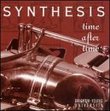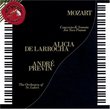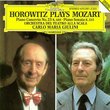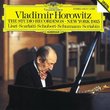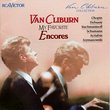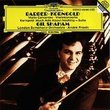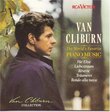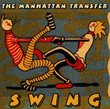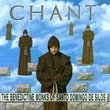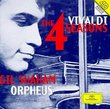| All Artists: Ferruccio Busoni, Wolfgang Amadeus Mozart, Frederic Chopin, Franz [Vienna] Schubert, Franz Liszt, Robert Schumann, Sergey Rachmaninov, Alexander Scriabin, Moritz Moszkowski, Vladimir Horowitz Title: Horowitz: The Last Romantic Members Wishing: 0 Total Copies: 1 Label: Dg Imports Release Date: 12/11/1985 Album Type: Import Genres: Dance & Electronic, Classical Styles: Forms & Genres, Short Forms, Sonatas, Historical Periods, Classical (c.1770-1830), Modern, 20th, & 21st Century Number of Discs: 1 SwapaCD Credits: 1 UPC: 028941904522 |
Search - Ferruccio Busoni, Wolfgang Amadeus Mozart, Frederic Chopin :: Horowitz: The Last Romantic
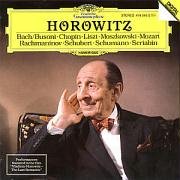 | Ferruccio Busoni, Wolfgang Amadeus Mozart, Frederic Chopin Horowitz: The Last Romantic Genres: Dance & Electronic, Classical
![header=[] body=[This CD is available to be requested as disc only.]](/images/attributes/disc.png?v=a4e11020) ![header=[] body=[This CD is available to be requested with the disc and back insert.]](/images/attributes/disc_back.png?v=a4e11020) ![header=[] body=[This CD is available to be requested with the disc and front insert.]](/images/attributes/disc_front.png?v=a4e11020) ![header=[] body=[This CD is available to be requested with the disc, front and back inserts.]](/images/attributes/disc_front_back.png?v=a4e11020) |
Larger Image |
CD DetailsSimilar CDsSimilarly Requested CDs
|
CD ReviewsHear the origins of modern music - Will Flannery | Berkeley, CA | 01/25/2000 (5 out of 5 stars) "This is a phenomenal CD. First, there is the sound, this recording is crystal clear, the piano is in your listening room with you. The difference between the sound of the new digital recordings and at least some of the older recordings is like day and night.Then there is Horowitz. Before Horowitz, I could not discern the intent of classical music. But with Horowitz, you hear not only the notes but also the intention behind the notes, it's as if Horowitz is a master operator behind the glass booth, and he controls the technical facilities necessary to produce the sound with no effort, making it bend to reflect his every nuanced emotion. With Horowitz you hear emotion and personality; is it how Mozart, or Chopin, would have played it? Who knows, could be. Maybe not, but it has a depth and complexity that brings the music to life.And of course there is Horowitz's famous touch and technique. Fully revealed on this disc.But it is the program that really knocks me out. The first track is a Bach Choral Prelude, which sounds like its name implies. Peaceful, reflective, and then finally moving to a heart wrenching poignancy anchored by left hand octaves. Next comes a three part Sonata by Mozart. Here we can picture a Viennese ball, with singing and dancing. Music full of exuberance and joy in the first and third sections, and calm reflection in the second, with some fairly strong opinions stated with the help of left hand octaves. This is classical music at its finest.The hammer drops with the third selection (fifth track), Chopin's "Mazurka in A minor". The tempo is uncertain, the chords have only a few close notes, and the first phrase seems tentative and unfinished. Modern music! Completely neurotic, and in stark contrast to the Mozart that preceded it. The melancholic ruminations give way to a tranquil melodic section which is then called up short, and then repeats, and then is ended with a sharply stuck dissonance; the remainder of the piece is completely unsettled, with the dominant emotion changing every few bars. This piece could be played in a piano bar today, and reminds me of Bill Evans' "Peace Piece".If the "Mazurka in A minor" was the anguished neurotic of modern music, the next piece, Chopin's "Scherzo in A minor", is the raving lunatic bouncing off the asylum walls. This music reflects wild abandon. Two handed banging, with ferocious runs and arpeggios. The first section is a rollercoaster ride. This music is as wild as any modern jazz, and in fact, it sounds to me (a big Coltrane fan) like Trane could have copped some of his licks from this piece. The second section is, as I understand, taken from a Polish Christmas song. This time Chopin plays it straight, a calm in the midst of the storm, a beauty you can feel. But, the storm does return before the piece ends. This may have been one of the pieces written in the aftermath of a failed love affair.To me, the two pieces by Chopin represent the beginning of modern music. I don't think you'll find a better recording of them than this disc." Who cares that Horowitz was past his prime? Craig Matteson | Ann Arbor, MI | 07/09/2002 (5 out of 5 stars) "This is the sound recording of a famous video of Horowitz performing in his home. There is a great deal to love on this disk. The Bach/Busoni is tremendously beautiful. The Mozart is just wonderful as is the Chopin Mazurka.The Scherzo shows that Horowitz was once a titan of the keyboard, but as he himself says in the video "pretty good for an old man". The resto of the program are other shorter pieces that show Horowitz's remaining strengths - his tone color, his line, his interpretive abilities. This is a great disk to have and is an important historical disk of one of the all time great pianists even if it is in his old age. The charisma pours out and you know why he was still selling out any auditorium whenever he cared to play." 81 Years Young Hank Drake | Cleveland, OH United States | 11/18/2005 (4 out of 5 stars) "The career of Vladimir Horowitz had many ups and downs. When he retired after a series of disastrous concerts in 1983, very few thought he would ever play again. It was learned that Horowitz's was off his game during that time due to anti-depressant medication which affected his memory and coordination. Horowitz dropped the medications in 1984, and spent much of that year enduring withdrawal symptoms. He didn't begin practicing again until late-1984.
By 1985, he felt well enough to begin performing again, but didn't want to immediately face a live audience. It was decided that a documentary would be made, and thus "Vladimir Horowitz: The Last Romantic," filmed in the pianist's townhouse, came to fruition. The performances in this CD are taken from that film, although in some cases different takes were used. Horowitz, 81 years young at the time, plays well here--although his performance is not quite on the same level it would be one year later at his legendary Moscow recital. The Bach-Busoni Chorale, Mozart Sonata, and Schumann Novelette reveal the playing of a grand master in sovereign command of his resources. The Bach-Busoni is especially noteworthy for Horowitz's ability to separate musical lines. The Chopin Mazurka and Liszt Consolation are wonderfully poetic, and the Rachmaninoff Prelude is appropriately brooding. It must be admitted however, some of the more bravura pieces do not match his best playing from earlier years. The Chopin Scherzo betrays hints of frailty (although some of the tempos are astonishing), and the "Heroic" Polonaise is taken at a rather cautious tempo. Any doubt about the coordination of Horowitz's fingers, however, will be banished by the Moszkowski Etude. Lightning fast, with very little pedal, the pianist reportedly did it in one take. The sound is rather airless and confined, but clean and focused. " |

 Track Listings (13) - Disc #1
Track Listings (13) - Disc #1
